Top 20 Pharmacy Schools on the East Coast
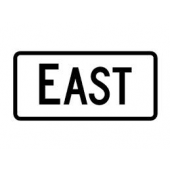
In preparing our inaugural list of the top pharmacy schools on the East Coast, we considered dozens of schools in the US that offered pharmacy programs. Our goal with this list is to give students access to information so they can make informed decisions about the schools they choose to attend and the programs they pursue. Our motivation for publishing these rankings is simple. We frequently receive emails from young people -many of whom are already working as pharmacy technicians- asking for advice as to which pharmacy schools they should consider. Our hope is that this list is a starting point for aspiring pharmacists to discover the schools that are the best fit for them.
The criteria we used in making this list consists, in no particular order, of the following: academic reputation, admission selectivity, depth and breadth of the program and faculty, size and scope of the pharm school class, and value as it relates to tuition. All data used on our rankings was obtained from publicly available sources.
Like any list, ours is not perfect and is open for debate. There is no single opinion that trumps all when it comes to which school is the “best”. Ultimately every student has different needs regarding the type and academic rigor of a program, campus culture, as well as cost, lifestyle, and career focus. Hence the notion that we consider these lists a starting point for aspiring pharmacists in the search for the appropriate program that meets their needs.
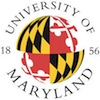 1. University of Maryland School of Pharmacy, Baltimore, Maryland
1. University of Maryland School of Pharmacy, Baltimore, Maryland
Established in 1841, the University of Maryland School of Pharmacy is the fourth oldest school of pharmacy in the U.S. Home to nearly 700 students, the School offers a variety of top-rated pharmacy programs. Offerings include the Pharm.D., Ph.D. degrees in Pharmaceutical Health Services Research and Pharmaceutical Sciences, and M.S. degrees in Pharmaceutical Sciences (Pharmacometrics) and Regulatory Science.
The School of Pharmacy also offers many dual degree programs. Dual offerings include the Pharm.D./JD (University of Maryland School of Law), Pharm.D./MBA (UB/Towson MBA Program), and a Pharm.D./MPH (University of Maryland School of Medicine).
Tuition for the University of Maryland School of Pharmacy is $572 per credit hour ($3,432/six credits) for residents, and $1,030 per credit hour ($6,180/six credits) for non-residents.
About University of Maryland: University of Maryland was chartered in 1856 as Maryland Agricultural College. Ranked among the Top 20 Public Universities in the country by U.S. News & World Report and Forbes, the University of Maryland sits on 1,200 acres and it is home to 37,248 students. The University offers more than 90 academic programs across more than a dozen colleges and schools.
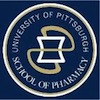 2. University of Pittsburgh School of Pharmacy, Pittsburgh, Pennsylvania
2. University of Pittsburgh School of Pharmacy, Pittsburgh, Pennsylvania
The University of Pittsburgh School of Pharmacy is the oldest school of the University of Pittsburgh's Schools of the Health Sciences. Chartered in 1878, the School of Pharmacy enrolls 100+ students each year. Offerings include the Pharm.D., a Ph.D. and M.S. Thesis program with four tracks, and a one-year M.S. in Pharmaceutical Sciences. Tracks for both the M.S. Thesis and Ph.D. programs include Biochemical Pharmacology, Clinical Pharmaceutical Scientist, Medicinal Chemistry, and Pharmaceutics
Tuition rates for academic year 2013-2014 are $27,798 for residents and $30,870 per year for non-residents. Tuition costs for the Graduate program in Pharmaceutical Sciences (M.S. or Ph.D.) is $23,408 per year for residents and $24,110 for non-residents. The School of Arts and Sciences Pre-pharmacy program costs $16,241 for residents and $26,246 for non-residents.
About University of Pittsburgh: Founded in 1787, the University of Pittsburgh is one of the oldest universities in the U.S. Rated one of the nation's best institutions for undergraduate education in Princeton Review’s 2014 edition of “The Best 378 Colleges,” the University of Pittsburgh offers 100+ undergraduate programs and more than 200 graduate degree programs. The school, which sits in a 132-acre campus, is home to more than 35,000 students.
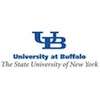 3. University at Buffalo School of Pharmacy and Pharmaceutical Sciences, Buffalo, New York
3. University at Buffalo School of Pharmacy and Pharmaceutical Sciences, Buffalo, New York
The University at Buffalo School of Pharmacy and Pharmaceutical Sciences ranks among the top pharmacy schools in the U.S. Founded in 1886, the school is “the second-oldest component of the University at Buffalo and the only pharmacy school in the State University of New York (SUNY) system.”
The School offers the Pharm.D. as well as dual degrees including a Pharm.D./MBA, Pharm.D./MPH, Pharm.D./JD, a Pharm.D./Ph.D., and a Pharm.D./M.S. The School also offers a M.S. and Ph.D. in Pharmaceutical Sciences, a B.S. in Pharmaceutical Sciences, an accelerated B.S./M.S. in Pharmaceutical Sciences, and a Pre-pharmacy program.
The cost of tuition for the University at Buffalo School of Pharmacy and Pharmaceutical Sciences is $22,610 for 9.5 months.
About University at Buffalo: TheUniversity at Buffalo is “a flagship institution in the State University of New York system.” Founded in 1846, the University at Buffalo is the largest and “most comprehensive campus in the 64-campus SUNY system.” The school, which sits on 1,300 acres, has three campuses and it is home to 57,904 students. University at Buffalo offers around 400 degree programs throughout the College of Arts and Sciences, 11 professional schools, and a graduate division at Roswell Park Cancer Institute.
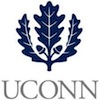 4. University of Connecticut School of Pharmacy, Storrs, Connecticut
4. University of Connecticut School of Pharmacy, Storrs, Connecticut
The University of Connecticut School of Pharmacy opened to the public on October 20, 1925. Known as “UConn School of Pharmacy,” the School offers the Pharm.D., a Ph.D. in Pharmaceutical Sciences, and several dual degrees. Dual degree offerings include the Pharm.D./MBA, Pharm.D./MPH, and the Pharm.D./Ph.D. in Pharmaceutical Sciences.
Tuition rates are $12,022 for the Pre-pharmacy program and Professional Years 1-2 (residents) and $23,306 for years 3-4. New England regional residents [MA, ME, NH, VT] pay $18,964 for years 1-2 and $38,712 for years 3-4. Non-resident tuition is $30,970 for Pre-pharmacy and Professional Years 1-2, and $47,098 for years 3-4.
About University of Connecticut: The University of Connecticut is a land grant and sea grant college consisting of one main campus and five regional campuses. Founded in 1881, the school sits on 4,067 acres and it is home to more than 30,000 students. The University of Connecticut offers more than 200 academic programs throughout 14 colleges and schools.
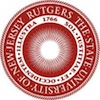 5. Rutgers University Ernest Mario School of Pharmacy, Piscataway, New Jersey
5. Rutgers University Ernest Mario School of Pharmacy, Piscataway, New Jersey
Established in 1892, the Rutgers University Mario School of Pharmacy has just launched the nation’s first dual degree program in pharmacy and medicine (Pharm.D./MD). The program is offered in partnership with the Robert Wood Johnson Medical School. Other dual degree programs include the Pharm.D./Ph.D., Pharm.D/MPH, and the Pharm.D/MBA.
The Ernest Mario School of Pharmacy also offers the Pharm.D., a M.S. and Ph.D. in Medicinal Chemistry and Pharmaceutical Sciences, and a M.B.S. in Drug Discovery & Development.
Tuition for the School of Pharmacy is $14,687 for residents and $30,239 for non-residents.
About Rutgers University: Rutgers University is one of the nation’s oldest universities. Established in 1766, Rutgers is also the only university in the United States that is a land-grant institution, public university, and a colonial college. The school, which sits on a 2,695-acre campus, is home to more than 65,000 students enrolled in more than 300 programs across 33 colleges and schools.
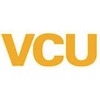 6. Virginia Commonwealth University School of Pharmacy, Richmond, Virginia
6. Virginia Commonwealth University School of Pharmacy, Richmond, Virginia
In 1971, Virginia Commonwealth School of Pharmacy became one of the first schools in the U.S. to provide a 640-hour clerkship program. This program required all pharmacy students to spend their final year in practice under the “supervision of faculty preceptors.”
Established in 1898, the VCU School of Pharmacy offers the Pharm.D., and a Ph.D., M.S. and M.P.S. with tracks in Medicinal Chemistry, Pharmaceutics, Pharmacotherapy, or Pharmacoeconomics and Health Outcomes. The School also offers several dual degree programs including the Pharm.D./Ph.D., Pharm.D./M.S., Pharm.D./MBA, Pharm.D./MPH and the Pharm.D./Certificate of Aging Studies.
Tuition for the VCU School of Pharmacy is $6,099.73 for 9-15 credit hours (residents) and $11,639.23 for 9-15 credit hours (non-residents).
About Virginia Commonwealth University: Virginia Commonwealth University (VCU) was established in 1838 as the Medical College of Virginia (MCV). The school offers more than 220 certificate and degree programs, including 33 nationally ranked programs. Housed on a 143-acre campus, Virginia Commonwealth University is home to 31,000 students, 13 schools, and one college.
 7. Temple University School of Pharmacy, Philadelphia, Pennsylvania
7. Temple University School of Pharmacy, Philadelphia, Pennsylvania
The Temple University School of Pharmacy is home to more than 800 students. Offerings include the professional Pharm.D., and Ph.D. and M.S. degrees in Medicinal Chemistry, Pharmaceutics, and Pharmacodynamics. The School also offers Non-thesis based M.S. programs in Quality Assurance and Regulatory Affairs and in Pharmaceutics.
Resident tuition is $13,006 for the 2012-13 school year and $22,832 for non-residents.
About Temple University: Temple University is an urban public research university with nine campuses across the U.S., Rome, and Tokyo—the oldest and largest foreign university in Japan. Chartered in 1888 as “The Temple College,” the school sits on a 330-acre campus and it is home to more than 36,000 students. Temple University has 17 colleges and schools offering more than 300 academic programs.
 8. University of Rhode Island College of Pharmacy, Kingston, Rhode Island
8. University of Rhode Island College of Pharmacy, Kingston, Rhode Island
The University of Rhode Island College of Pharmacy is home to more than 700 students. More than 1,200 highly qualified applicants apply to the College each year, many of them competing for just 120 spots in the Pharm.D. program. In addition to the Pharm.D., the College of Pharmacy offers M.S. and Ph.D. degrees in Pharmaceutical Sciences with specializations in Medicinal Chemistry and Pharmacognosy, Pharmaceutics and Pharmacokinetics, Pharmacoepidemiology and Pharmacoeconomics, and Pharmacology and Toxicology.
The College also offers several joint degree programs and a B.S. including a Pharm.D./MBA, Pharm.D./M.S, a Pharm.D./B.A. in French, and a B.S. in Pharmaceutical Sciences.
Resident tuition is $11,532 (9-15 credits) and $23,606 (9-15 credits) for non-residents. The school offers discounted tuition for New England residents at a rate of $17,298 for 9-15 credits.
About University of Rhode Island: Established in 1892, the University of Rhode Island (URI) is the state’s current land, sea, and urban grant public research institution. Located just 79 miles from Boston and 29 miles from Providence, the University of Rhode Island sits on a 1,200-acre campus and it is home to around 16,000 students. The school offers 80 majors across four campuses.
 9. Northeastern University School of Pharmacy, Boston, Massachusetts
9. Northeastern University School of Pharmacy, Boston, Massachusetts
Northeastern University School of Pharmacy was established in 1927 as the Mariano School of Pharmacy. Part of Northeastern’s Bouve College of Health Sciences, the School offers the Pharm.D., and M.S. degrees in Medicinal Chemistry, Pharmacology, Pharmaceutical Sciences: Pharmaceutics and Drug Delivery Systems, and
Pharmaceutical Sciences: Interdisciplinary Concentration.
Ph.D. degree offerings include Medicinal Chemistry and Drug Discovery, Pharmacology, Pharmaceutical Sciences: Pharmaceutics and Drug Delivery Systems, and Pharmaceutical Sciences: Interdisciplinary Concentration.
Tuition for the Bouve College of Health Sciences/School of Pharmacy is $1,210 per credit hour.
About Northeastern University: Established in 1898,Northeastern University ranks #56 in U.S. News & World Report’s 2013 edition of Best Colleges, National Universities. This private institution sits on a 73-acre campus and it is home to around 21,257 students. Northeastern offers more than 250 graduate and undergraduate programs across nine colleges and schools.
 10. Duquesne University Mylan School of Pharmacy, Pittsburgh, Pennsylvania
10. Duquesne University Mylan School of Pharmacy, Pittsburgh, Pennsylvania
The Duquesne University Mylan School of Pharmacy opened in 1925 with just 50 students. Today, the School ranks among the Top 100 Pharmacy Schools by U.S. News & World Report (2011) and it is home to more than 1,200 students, fellows, and residents.
Program offerings include the Pharm.D. and a M.S. and Ph.D. in Medicinal Chemistry, Pharmaceutics, and Pharmacology. The School also offers a M.S. in Pharmacy Administration.
Tuition for the Duquesne University Mylan School of Pharmacy is $1,207 per credit hour for the Pharm.D. program and $1,235 per credit hour for Pharmaceutical Sciences programs.
About Duquesne University: Duquesne University ranks among the nations Top 100 Popular Schools and it was voted one of America's Best Graduate Schools in 2011. Founded in 1878 as Pittsburgh Catholic College, Duquesne University sits on 49.5 acres and it is home to more than 10,000 students. The University offers 80 undergraduate programs, 85 graduate programs, and 20 post-graduate certificate programs across 10 schools.
Pages

- Facebook Like
- Google Plus One
- 203399 reads


